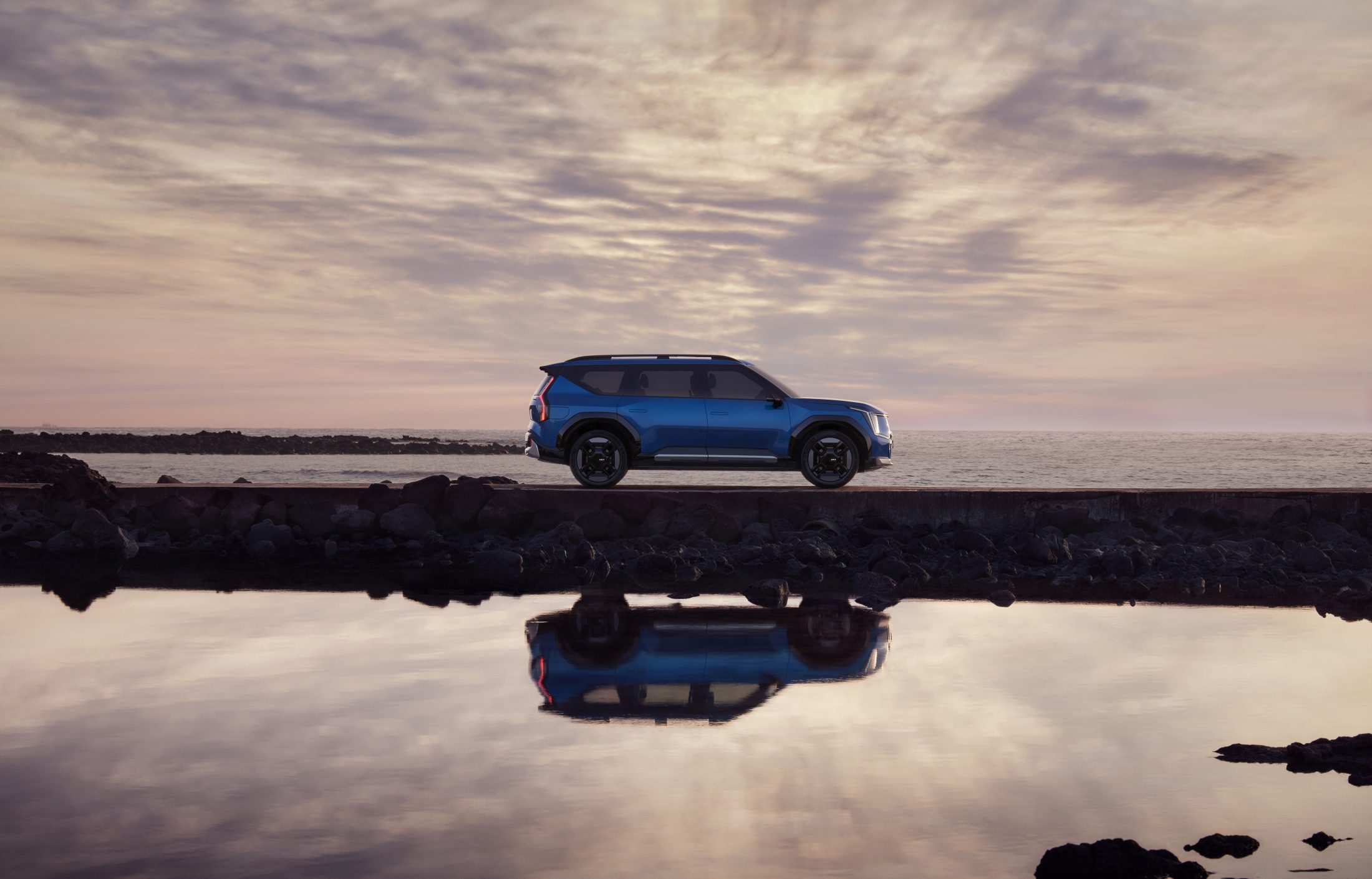
KIA EUROPE AND ENCORE | DB PARTNER TO CREATE SECOND LIFE ENERGY STORAGE SYSTEMS FROM USED EV BATTERIES
Kia Europe has confirmed plans to re-use former electric vehicle (EV) batteries in ’Second Life’ battery energy storage systems as part of its global strategic focus on sustainability.
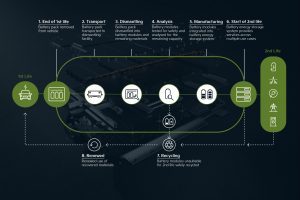
For this purpose, the mobility brand is partnering with encore, a corporate start-up from Deutsche Bahn (DB Bahnbau Gruppe), which receives EV battery packs from across Europe to build and distribute second life battery energy storage systems. EV battery packs are dismantled to battery module level and subjected to detailed diagnostic testing, with suitable modules then either used for new battery energy storage systems or recycled depending on their remaining capacity.
To deliver the Europe-wide initiative, Kia Europe has become the first mobility solutions provider to partner with encore | DB. The two companies have unveiled a prototype battery storage facility at EUREF-Campus in Berlin, made entirely from reused Kia Soul EV battery modules.
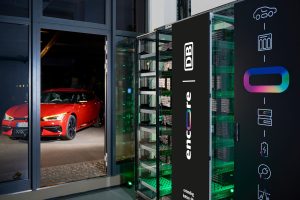
As a pioneer of e-mobility and leader in sustainable mobility solutions, Kia has shared its plans to develop Purpose Build Vehicles (PBVs), autonomous technologies and several forward-thinking concepts which will set future trends. Kia develops every model with a ‘cradle to cradle’ approach, with consideration for end-of-life processes and resource regeneration. This has led Kia to seek alternatives to the recycling of used EV batteries in favour of Second Life projects, which extend the useful life of batteries through new applications. encore | DB already operates a battery take-back service across Europe for the creation of Second Life battery energy storage systems, facilitated by the comprehensive infrastructure available within the Deutsche Bahn Group. The Europe-wide transport of the batteries and new energy storage units is primarily handled by the logistics subsidiary DB Schenker as well as DB Cargo.
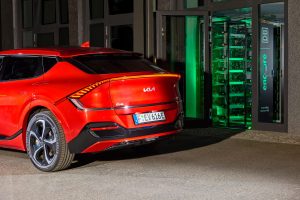
Jason Jeong, President at Kia Europe commented: “With our success in the electrification of Kia models, we also take responsibility for the batteries beyond their lifetime in the car. The pioneering partnership between Kia and encore | DB shows that we regard batteries as a valuable resource in terms of a sustainable circular economy.”
First prototype project launched
EUREF-Campus, Berlin is a symbol of the energy revolution in Germany
In August, Kia Europe and encore | DB jointly revealed their first battery energy storage system at the EUREF-Campus in Berlin, where it functions as part of the Micro Smart Grid, a power grid in which different energy sources, consumers and storage systems are linked intelligently. The aim is to reduce reliance on the grid through predictable energy flows and increase the share of renewable energy use across the campus.
“It’s more urgent than ever for us to save power,” says Berthold Huber, Member of the Management Board of Deutsche Bahn for Infrastructure. “Our new second-life battery banks offer a solution that is also sustainable. And that makes it an attractive option for any industry.”
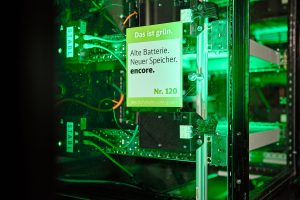
The process
In order to build the battery energy storage system, encore | DB collects, dismantles, analyses and then repurposes or recycles the EV batteries. For the battery energy storage system at the EUREF-Campus, used Kia Soul EV battery packs were collected from Kia dealers and transported to encore | DB’s dismantling partner, DellCon, via Deutsche Bahn’s extensive logistical network to ensure sustainable and safe transport. The packs were then dismantled to modular level for state-of-the-art diagnostic testing to assess battery state of health.
The unit at the at the EUREF-Campus is comprised of 24 battery modules in total arranged over three racks; each module made up of 14 double cells. A novel power conversion system with an integrated battery management system (BMS) specifically developed by STABL Energy compensates for the varying states of health between the battery modules by performing passive or active voltage balancing where needed. The prototype unit will provide 72 kWh of usable power to support ‘timeshifting’ – storing solar power for later use – and other applications across inno2grids zeeMobase (zero emission mobility base) at the EUREF-Campus.
Todds of Campsie
6 Courtauld Way
Campsie Industrial Estate
Londonderry
BT47 3DN